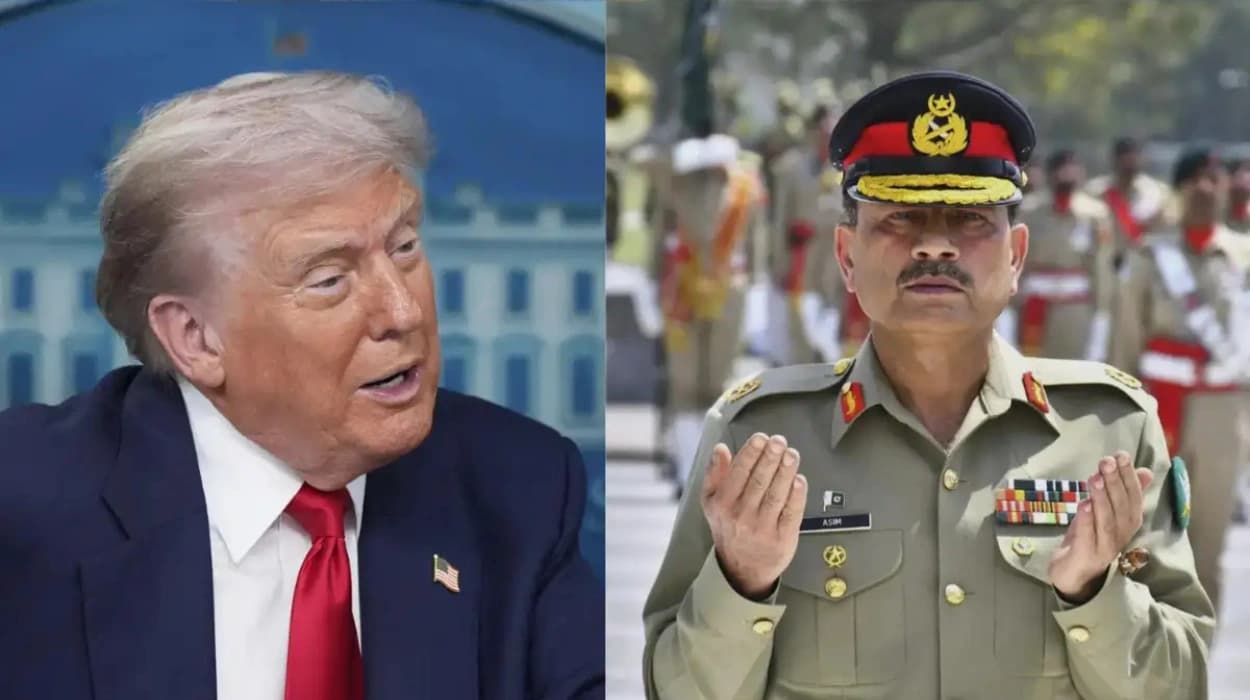In a significant pivot aimed at broadening its economic relationship with Pakistan, the United States under President Donald Trump’s administration is focusing on developing trade ties centered around critical minerals and hydrocarbons. This move follows the discovery and pitching of massive oil reserves in Pakistan and marks a new chapter in US-Pakistan economic cooperation beyond traditional security and counterterrorism links.
Emerging Economic Cooperation Focus
The US interest in Pakistan is no longer confined to military and security dimensions but increasingly incorporates strategic economic sectors essential for modern industries and national security. Secretary of State Marco Rubio, in a statement on Pakistan’s Independence Day, highlighted the intent by saying,
“We look forward to exploring new areas of economic cooperation, including critical minerals and hydrocarbons, and fostering dynamic business partnerships,”
signaling Washington’s renewed economic engagement with Islamabad.
This shift comes amid stalled trade talks between the US and India, prompting Washington to seek closer economic ties with Pakistan. The strategic importance of critical minerals—which include rare earth elements and metals vital for clean energy, defense manufacturing, and technology supply chains—has propelled this initiative forward.
Landmark $500 Million US-Pakistan Minerals Deal
On September 8, 2025, Pakistan and the United States concretized their growing economic partnership with a landmark agreement involving Missouri-based U.S. Strategic Metals (USSM) and Pakistan’s military-managed Frontier Works Organisation (FWO). The $500 million deal focuses on the extraction and export of key minerals such as copper, antimony, tungsten, and rare earth elements from Pakistan to the US market.
Prime Minister Shehbaz Sharif’s office announced that this agreement is projected to unlock Pakistan’s vast mineral wealth, which experts estimate at trillions of dollars, and provide much-needed economic relief to a country burdened by some $130 billion in external debt. The MoU signed is a preliminary step aimed at exporting raw minerals initially while planning domestic processing facilities that will add value within Pakistan.
Sharif emphasized the economic potential, stating,
“Harnessing our mineral reserves could revolutionize Pakistan’s economy and transform the lives of our people.”
USSM's COO, Zain Kazmi, explained the strategic nature of the MoU:
“This agreement fosters goodwill and opens the door for larger, high-quality investments by signaling serious US interest in Pakistan’s mining sector.”
The partnership has the potential to introduce new skills, infrastructure, and jobs into the Pakistani economy, long neglected despite the country’s rich reserves in copper, lithium, and rare earths.
Hydrocarbons and Oil Reserves as a Parallel Track
Alongside minerals, the US is also expanding cooperation with Pakistan in hydrocarbons. The Trump administration had earlier pitched collaboration on Pakistan’s massive oil reserves, with the President himself publicly stating optimism about the partnership’s energy potential. This inclusion aims to complement mineral development efforts by tapping into Pakistan’s oil and gas sector, an area where Islamabad is keen to attract foreign investment and expertise.
The planned energy cooperation dovetails with trade deals announced earlier in 2025 which eased tariff pressures on Pakistani textile exports, marking a comprehensive economic engagement beyond mere access to markets. The US’s strategy now includes direct investment in sectors fundamental to future energy and tech demands, providing greater economic stability to Pakistan and diversifying the US supply chains away from traditional sources.
Geopolitical Implications and Balancing Act
The mineral and hydrocarbon cooperation also tests Pakistan’s geopolitical tightrope between its longstanding ties with China and emerging relations with the US. China’s $62 billion China-Pakistan Economic Corridor (CPEC) has made Beijing a dominant economic partner, especially in regions like Balochistan where mining and infrastructure projects have sparked local unrest and security concerns.
The introduction of US investment in these strategic provinces signals Pakistan’s intent to diversify economic partnerships. Analysts suggest that this move could complicate Chinese dominance while potentially stabilizing insurgent-prone areas by spreading economic benefits more broadly. As Uair Youus from Asia advisory firm The Asia Group noted,
“Pakistan’s willingness to engage Western investors in critical sectors like minerals shows a strategic bid to balance competing influences in Balochistan.”
A New Chapter in US-Pakistan Relations
This economic thaw contrasts with previous tensions—President Trump himself had criticized Pakistan harshly in the past, accusing it of duplicity, especially after the 2011 Osama bin Laden raid in Abbottabad. Yet, the recent developments reflect a pragmatic reassessment on both sides. The US recognizes Pakistan’s strategic and economic potential beyond military logistics and counterterrorism, while Pakistan seeks credible economic partners to revitalize its strained finances.
Analysts observe that if both countries follow through on these agreements, it could serve as a model for future bilateral engagements that balance economic interest with geopolitical realities. Pakistan hopes that the $500 million initial investment is just the beginning of a broader wave of industrial modernization and export diversification.
Looking Ahead
The next phase involves actualizing these agreements into tangible projects on the ground. For Pakistan, the challenge will be to convert mineral wealth into sustainable development and job creation, which requires infrastructure development, technological upgrades, and regulatory clarity. For the US, securing reliable supplies of minerals crucial for clean energy and defense manufacturing amid global supply chain pressures is an urgent priority.
The evolving US-Pakistan relationship, anchored now as much in minerals and hydrocarbons as it is in security, may be a signpost for renewed bilateral ties. As the world increasingly values access to critical raw materials, Pakistan’s role as a supplier to American industries could shift geopolitical dynamics and economic patterns in the region.

